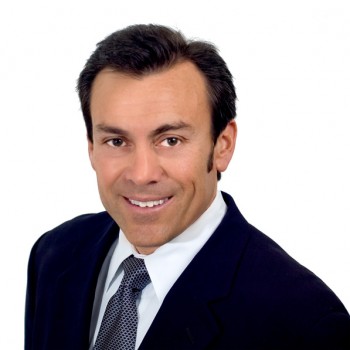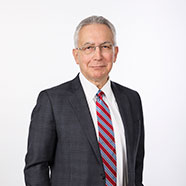How many thirteen-year-olds are willing to work two jobs so they can go to private school? Gabriel Sandoval was the only one of his seven siblings who chose not to attend public high school. Instead, he took the initiative to obtain a needs-based scholarship and worked to make up the difference so he could go to private school at Providence High School in Burbank, California.
“I worked in a friend’s machine shop every day from 7 a.m. to 4 p.m.,” Sandoval says. “Then, from 6 p.m. to 1 a.m., I worked with my sister in the Hollywood Bowl parking lot. I did this every summer through high school to help pay for books and tuition. I never took any vacations.” He has basically kept up that pace ever since.
“Before relocating to California, my parents had been through several government takeovers of their land in Mexico. My father told me that you could lose your money and property, but you could never lose your education or profession. That’s what drove me,” Sandoval says.
Another needs-based scholarship, Pell grants, low-interest loans, and a job in his fraternity enabled Sandoval to attend Stanford University and then law school at Santa Clara University. During his second year at Santa Clara, he clerked for an IP partner at Ropers Majeski Kohn & Bentley and continued there as an associate after graduating.
He envisioned becoming a partner at the firm someday, but his unique combination of skills started attracting attention. “A recruiter called about a job at a tech company working on Latin American deals. I wasn’t sure I could practice law in Spanish, though, so I declined the interview,” he says.
A couple months later, he was contacted about another position at the same company—Oracle—this one focusing on domestic deals. “There didn’t seem to be any downside. I thought it would be good to get some in-house experience, to learn to specialize in IP licensing, and I figured I could always go back to a law firm if it didn’t work out,” he says.

Chief Legal Officer
Deem
Sandoval left Oracle after five years. “Everyone above me was relatively young. There didn’t appear to be much opportunity to move up any time soon, and I ultimately wanted to be general counsel.”
Sandoval was close to accepting a job at Microsoft when he came across an opportunity to be the first attorney at Ariba, a Silicon Valley startup. “Ariba was offering a much broader range of responsibilities, would enable me to move more quickly up the food chain, and I didn’t have to relocate,” he recalls. “A big, established company like Oracle is always in the driver’s seat. At a startup, you’re just developing your footprint. You have to be flexible.”
Sandoval left Ariba in 2001 and took some time off for the birth of his first child. In 2003, he followed another former Ariba colleague to Deem, a cloud and mobile company that connects a large and diverse group of customers, merchants, and partners across a proprietary business network allowing users to procure and manage services such as air, car, and hotel. The company was founded in 1999, had forty employees when he started, and now has nearly four hundred.
As with Ariba, Sandoval was Deem’s first in-house counsel and now holds the title of chief legal officer. “I’m involved in just about everything, including financings, pricing discussions, how to structure deals, et cetera,” he says. “I’m as close a proxy to the CEO as anyone can be.”
Like most successful startups, Deem could go public or be acquired, and Sandoval admits anything is possible. “We recapitalized at the end of 2013 to take the company to the next level,” he says. “The biggest struggles for startups are determining which business models to focus on and managing costs. That requires constraint and diligence.”
By choosing to take top-level positions in smaller tech firms throughout his career instead of working under other attorneys at bigger-name companies, Sandoval has emerged as a businessman who also happens to be a top attorney. “I really enjoy the business side of what I do, so this could potentially be my last formal role as a general counsel,” he says.

